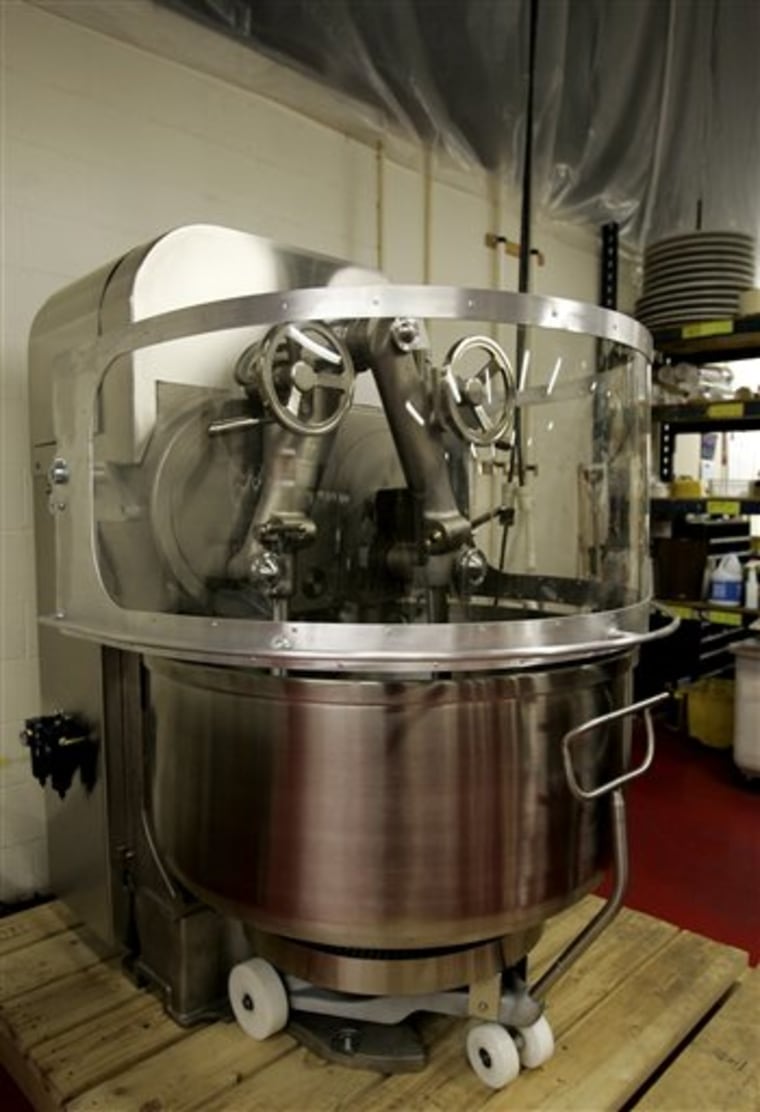Twelve years after her divorce, Karin Seruga finally got what she really wanted: A dough mixer.
Not just any dough mixer. This one is 6 feet tall, 4 feet wide and weighs 2 tons. The machine was developed in Switzerland a century ago and is used by commercial bakeries around the world to make their pastries light and fluffy.
The Artofex triple-action mixer isn't for Seruga's kitchen, it's for her bakery-machine business. A federal judge ruled late last month that she has the right to make and sell it in the U.S. and awarded her $570,000 in a bitter legal battle with her ex-husband, who runs a competing enterprise.
In court filings, lawyers for ex-husband Richard Zinn portrayed Seruga as a woman scorned who was pursuing "a matrimonial action in the guise of a trademark dispute." She denied the accusation.
"It was all about business," Seruga said. "It was a matter of money. Business is business, and you don't step on someone else's territory." She declined to discuss details of the ruling.
‘A miscarriage of justice’
Richard Joel, an attorney for Zinn, said he planned to appeal U.S. District Judge Garrett Brown's decision.
"We have full grounds for an appeal and that's what we're going to do," Joel said. "We feel the decision is a miscarriage of justice."
About the only thing the two sides appear to agree on is that the dispute dates to the mid-1990s, when the marriage hit the skids.
The couple signed an agreement at the time of their divorce in 1997 that set parameters for them to operate competing businesses selling bakery machines. Seruga's Excellent Bakery Equipment Co. is in Fairfield, about 20 miles northwest of New York City; Zinn's Excalibur Bagel and Bakery Equipment is 10 miles away in Fair Lawn.
Seruga claims she had sole distribution rights from 1997 on and that she paid $5,000 for the trademark in 2003 but that Zinn continued to use the name in advertising and sales. Zinn claims the company that assigned her the trademark didn't actually own it at the time.
Among other accusations contained in the lawsuit: Zinn told some customers that she had died, and he continued to use Excelsior's phone number at his new business until a court ordered him to change it, according to Seruga; Seruga admitted the trademark was invalid in e-mails retrieved from her computer, Joel contends.
Joel concedes the trademark's history is a "contorted, convoluted thing."
‘They're like human hands’
The Artofex machine was invented in Switzerland in the early 1900s and first trademarked in the U.S. in the 1920s. The mark passed through several hands in the 1980s and '90s as different companies were acquired or dissolved. Seruga's and Zinn's joint business, Excelsior, was the sole distributor of Artofex products in the U.S. until the company's dissolution in 1995.
The mixers come in different sizes, but the largest costs up to $60,000 and uses a four-foot-diameter metal bowl that can hold up to 700 pounds of dough, Seruga said. Two long metal arms are attached to wheels: The end of one arm resembles two fingers spaced about five inches apart and the end of the other looks like an elongated golf putter.
As the wheels turn, the two arms simulate a mixing motion as the bowl turns slowly.
"They're like human hands," Seruga said. "They lift, knead and stretch."
She said the machines, which routinely last for 50 years or more, are used by hundreds of companies including Sara Lee and Entenmann's, both of which gave depositions in the lawsuit.
Ultimately, Judge Brown sided with Seruga and found Zinn guilty of trademark infringement, counterfeiting, breach of contract and tortious interference. The monetary award represented an estimation of his company's profits from 1997 to 2006.
